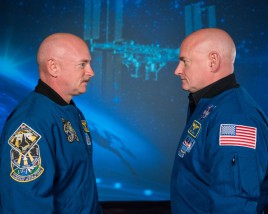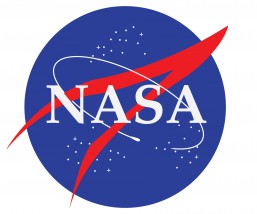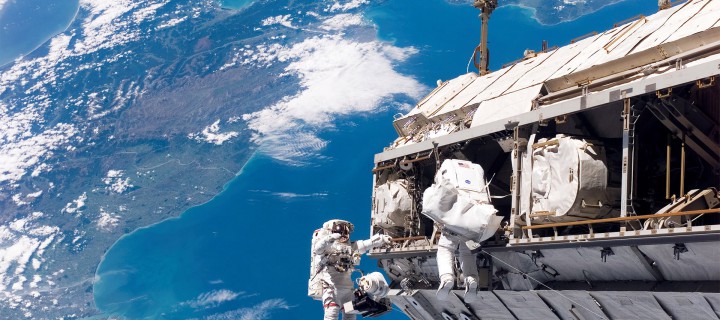After spending almost a year aboard the International Space Station, astronaut Scott Kelly’s has biologically changed: he’s now two inches taller than he was while on Earth.
 Now the taller between himself and his identical twin brother Mark, one of the goals of his mission was to find out how the human body endures long periods in space.
Now the taller between himself and his identical twin brother Mark, one of the goals of his mission was to find out how the human body endures long periods in space.
Kelly, who has spent more time in space than any other American astronaut, says he feels good despite the late growth spurt. He’s now taking on a yearlong project to monitor his health.
Mark, a former NASA astronaut himself, is an important part of the study even though he’s based on Earth. NASA scientists can easily compare the twins and spot any genetic changes that might have occurred in Scott in space.
Here’s a short list of what NASA and the National Space Biomedical Research Institute are on the lookout for in this mission:
Brittle Bones
- Since astronauts no longer walk around the spacecraft, floating instead; the bones in the legs, hips and spine experience a significant decrease in load bearing
- This can lead to a reduction in calcium and bone breakdown, leaving the bones brittle/weak
Weak Muscles
- Longer time in spaceflight equates to less work for the legs and back.
- Muscles can begin to weaken or atrophy, leaving astronauts more susceptible to fall-related injuries
 Puffy Face and Legs
Puffy Face and Legs
- In space, blood flows more in the upper part of the body than the lower half; astronauts often have a puffy face or smaller legs
Smaller Heart
- The heart doesn’t have to work as hard in space: over time, this could lead to a reduction in heart size
- There’s also a theory space radiation affects the lining of the heart’s blood vessels, leading to coronary heart disease
Increased Cancer Risk
- Scientists are positive astronauts are exposed to higher levels of radiation in space that lead to cataracts/cancer
Balance Issues
- The inner ear is dependent on gravity, so no longer functions correctly in space. Astronauts can experience disorientation, space motion sickness and a loss of sense of direction.
- When they return to Earth, astronauts have had trouble readjusting, having difficulty standing up, stabilizing their gaze, walking and turning.
Getting Taller
- Looks like they were right about this one.










